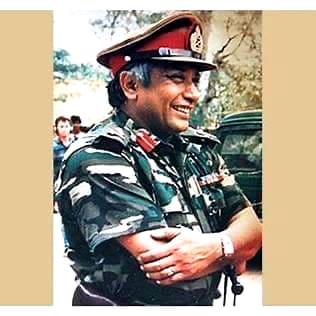Discipline, Dignity & Due Process: When a War Hero Is Accused
A call for ethical discipline, institutional accountability, and balanced justice — inspired by the wrongful arrest of a Sri Lankan war hero, and informed by lessons from Justice Ameer Ismail, SSP Tassie Seneviratne, Zerny Wijesuriya, and Gen. Cyril Ranatunga.

We have no quarrel with punishing the guilty. Our plea is simpler: do not punish the innocent by process.
On 24–25 August 2025, retired Major General Kithsiri Bandara Ekanayake was arrested in Beliatta amid sensational allegations — treasure hunting, and even a supposed ritual murder.
A month later, on 18 September, the magistrate terminated proceedings: there was no missing person, no excavation, the land was not an archaeological site, and a prosecution under Section 186 was untenable.
He walked free — cleared by the courts — but the reputational damage remained.
This was more than a legal misstep. It was a breach of institutional judgment that cut across law enforcement, media ethics, and national morale.
1 · What Wartime Scarcity Teaches About Peacetime Integrity
During Sri Lanka’s long conflict, the armed forces fought under systemic scarcity — limited medical facilities, thin medevac capability, and minimal transport.
The ICRC’s wartime sea evacuations of thousands of wounded civilians and soldiers remain a sobering reminder of how resource constraints magnify human cost.
Scarcity is not an excuse; it is a warning: the thinner your resources, the tighter your judgment and procedure must be.
Peacetime institutions must learn that same lesson.
When an arrest can ruin a lifetime of service, haste is not efficiency — it is error with a badge.
2 · Morale: The Military’s Special Fuel
Armies do not run solely on logistics; they run on morale — the invisible current that turns discipline into unity.
Modern research confirms that morale depends on ethical leadership and perceptions of fairness.
In the Sri Lankan Army, recent studies have found worrying rates of burnout and moral fatigue, both closely tied to recognition and institutional respect.
To publicly humiliate a decorated officer on weak grounds sends the wrong message to every rank and file:
“Even the best among us can be casually destroyed.”
Morale is not sentimentality. It is combat power in peacetime clothes.
3 · Discipline Without Deference — But Dignity Always
The military community does not ask for immunity.
We ask for process, proportionality, and respect.
We live under our own codes — the Army Act, Navy Act, and Air Force Act — and our disciplinary systems are often stricter than civilian ones.
But when external institutions apply procedure unevenly, or allow rumor to overtake verification, they erode trust in the very idea of justice.
Wrongdoing must be punished.
But wrongful accusation must not be institutionalized as performance.
4 · Policing and Credibility: Power Without Checks Erodes Trust
Public confidence in policing has frayed.
In recent years, Sri Lanka has witnessed custodial deaths, opaque arrests, and delays in inquiry that challenge constitutional guarantees.
The Bar Association of Sri Lanka (BASL) has repeatedly demanded that arrests follow procedure and that investigations remain transparent and insulated from politics.
When law enforcement acts first and verifies later, the damage extends beyond individuals — it corrodes the moral authority of the uniform itself.
5 · Anchors of Credibility and Ethical Example
Justice Ameer Ismail
Former President of the Court of Appeal, Supreme Court Justice, and later Chairman of the Commission to Investigate Allegations of Bribery or Corruption (CIABOC), Justice Ismail was unafraid to admit structural weaknesses in the system he led.
He observed that the earlier legal framework left CIABOC unable to launch independent investigations or cover certain state-linked institutions — a design flaw, not a personnel one.
His principle endures: build power into process, not personality.
SSP Tassie Seneviratne (Retd.)
In Human Rights & Policing – Reminiscences of My Police Days, Seneviratne revisits the 1990 massacre of over 600 surrendered police officers — a tragedy born of political interference and institutional paralysis.
His message was simple: loyalty belongs to law, not to faction.
That ethic must return to every rank, every desk, every investigation.
Zerny Wijesuriya
Historical accounts cite Zerny Wijesuriya, head of the National Intelligence Bureau, as an “internationally respected career intelligence officer.”
His removal during political reshuffles weakened analytical continuity and morale within the service.
His career stands as a cautionary example: professional institutions decay when politics overtakes merit.
General Cyril Ranatunga
A former Chief of Staff of the Army, Joint Operations Commander, and Defence Secretary, General Ranatunga exemplified clarity, humility, and factual discipline.
Colleagues recalled that he “spoke with precision, respected his superiors, never trod on the dignity of subordinates, and valued results over rhetoric.”
Those virtues — precision, humility, respect — are timeless operational principles for every public institution.
6 · Seven Steps Toward Restoring Trust
- Senior Pre-Arrest Review (SPAR) – Require signed ASP-level and legal-officer certification of evidence, land/permit checks, and witness reliability before any arrest of public or uniformed officials.
- Proportionality Protocol – Use summons and private inquiry as default; reserve arrests and media display for genuine flight risk or violence.
- Custodial Dignity Code – Independent inspections, mandatory audio/video where feasible, and automatic inquiry upon any complaint of abuse.
- Name-Clearing Orders – When charges are dismissed, issue equal-prominence public exoneration and apology; amend digital and official records accordingly.
- False-Allegation Accountability – Penalize malicious or reckless complainants under perjury and defamation statutes.
- Insulated Oversight – Strengthen commissions and internal-affairs divisions so appointments, promotions, and transfers are protected from political pressure.
- Press–Police Charter – A national code between the Editors’ Guild and BASL mandating verification, headline restraint, and balanced coverage for both accusation and exoneration.
7 · Why This Must Matter Beyond the Military
This is not a plea for privilege.
It is a plea for principle.
If a veteran officer can be humiliated without evidence, what safety remains for the ordinary citizen?
When we defend fairness for the disciplined, we defend fairness for everyone.
Justice is not a favor the State extends; it is the foundation on which the State stands.
Conclusion
Major General Ekanayake’s case is closed.
But the larger trial — of our institutions, our media, and our collective conscience — continues.
Sri Lanka must prove that it has matured beyond performance justice.
Accountability cannot mean spectacle.
And national unity cannot exist without institutional dignity.
Let this incident become a case study in reform, not in regression.
Let future officers, journalists, and citizens look back on this article and remember:
Only the guilty should fear arrest. Only the careless should fear reform.
About the Author
Alfie Ameer is the Founder & CEO of Vonfidel Group (VFG) — a multi-vertical enterprise encompassing Vonfidel Ranch, VONFIDEL K9, and Cognisive Consultants.
A former military officer and leadership psychologist, he writes on ethics, intelligence reform, and the science of calm authority in human and animal behavior.
Through Cognisive Insights, he explores the intersection of leadership, trust, and institutional culture — advocating progress rooted in discipline, dignity, and due process.
Follow his work at Cognisive Consultants | Vonfidel Group | Vonfidel Ranch

